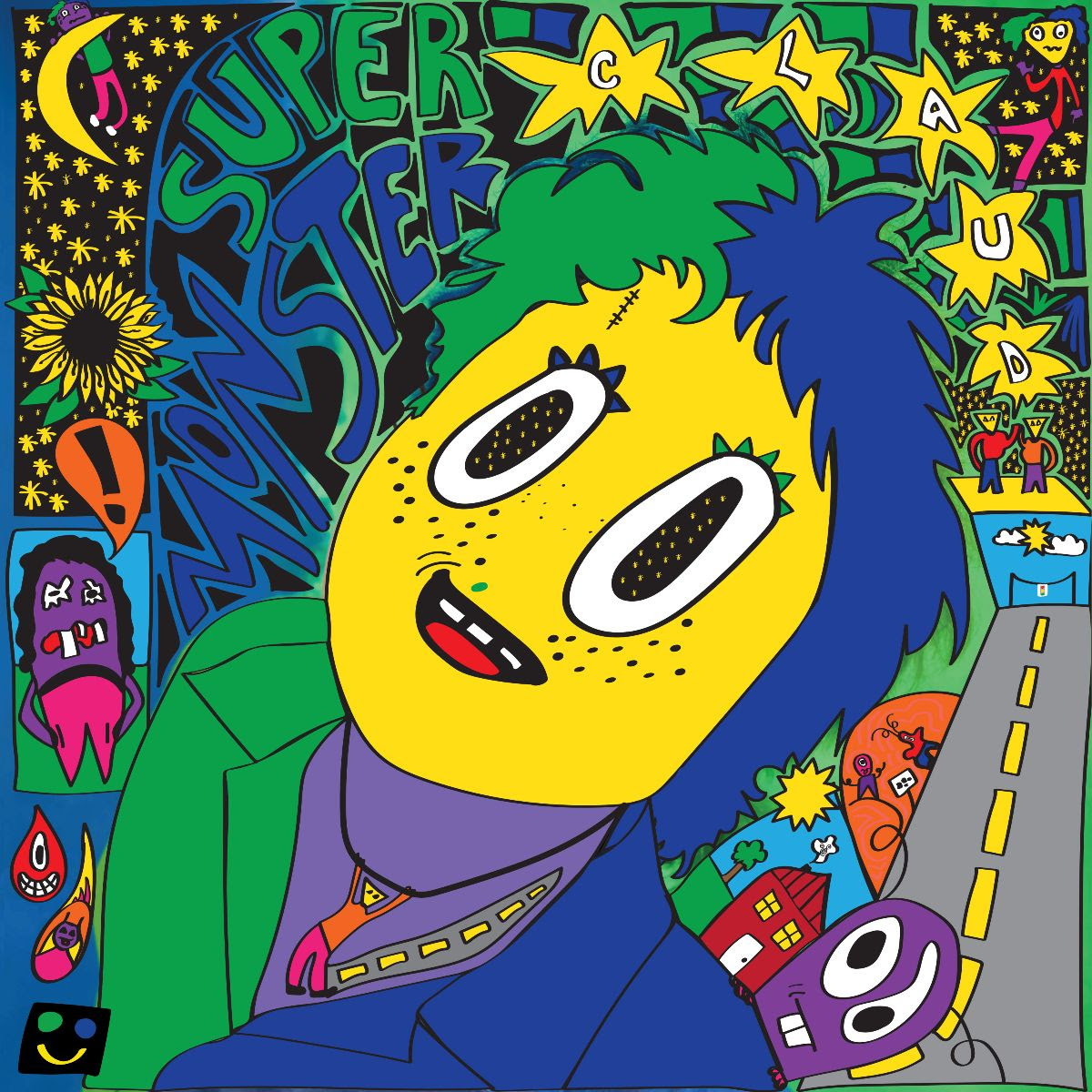Claud, aka Claud Mintz, really began making a name for themselves in 2020. Just last year, they formed a band with indie-pop darling Clairo and had the honor of being the first artist signed to Phoebe Bridgers’ record label Saddest Factory Records. It seems as though some of the biggest names in indie music are enthusiastically welcoming them into their world, and upon listening to Claud’s debut album ‘Super Monster’, it’s clear to see why.
The four singles released leading up to the album have been “Guard Down,” “Cuff Your Jeans,” “Gold,” and “Soft Spot” that are instantly gripping bedroom pop tracks with scaled up production. Claud’s music is melodic and catchy, sure to be a favorite for anyone who has enjoyed the course of the rising indie/bedroom pop scene over the past 5 years.
Claud is a non-binary artist who uses they/them pronouns, giving them a unique platform. There’s only a handful of non-binary artists who have achieved the kind of name recognition Claud has, and their career is only just beginning. Going into this album I was definitely keen to see the way Claud writes about gender. This is not to say that queer artists should only be expected to make art that focuses on their queerness, but gender identity has always played a central role in songwriting. Think about every song that relies on gender as a key storytelling element, or even changes meaning when pronouns are changed. The list seems endless, right?
All of that goes to say, the way Claud evokes cultural attitudes about gender in their songs is subversive, yet subtle enough to fold into the lush pop production. One of my favorite tracks is “Ana” in which the chorus goes:
“It’s been a pleasure to be your man
And I could hold you for every dance
But if I don’t ever take this chance
Then I should never have been your man”
Claud doesn’t use gender in a prescriptive way but rather sees it as a tool to convey a certain meaning in a relationship. To be someone’s “Man” in ‘Ana’ is not about biological sex; it’s about playing the role of a man, a role that is socially constructed. The song features Nick Hakim and Unknown Mortal Orchestra’s Jake Portrait, and is a love letter to Ana, their love for her, the memories they’ve shared, and the person Ana has let them become within the relationship. But Claud acknowledges that the relationship is holding them back from pursuing something bigger, something truer to themselves. Is being the ‘man’ too restrictive of a label? Or is the reason for their parting not about this dynamic at all, rather the recognition of an opportunity that they can’t pass up? With either interpretation, simply referring to themselves as the ‘man’ does give us a picture of the relationship inadvertently. What Claud does is reveal the power of gender, and of the simple words we use to describe it.
Claud does this subversive work on many songs on Super Monster. The song “That’s Mr. Bitch to You” openly reclaims the word ‘bitch’ not for women but rather from the gendered meaning as a whole. The song is revelrous, with the upbeat guitar riffs that would make anyone nostalgic for some of the best indie music from the 2000s.
On the song “Pepsi,” Claud sings about a relationship where they are idolizing their partner, constantly wishing they were as casually cool and successful as them. They incorporate every element of insecurity in a relationship, from sexual satisfaction, to money, to their talkative nature. But instead of dwelling in this insecurity, Claud recognizes that as they try and measure up to their partner, they begin to “lose their trust”. Wanting to be ‘cool’, can turn you into a fool in Claud’s words.
“Rocks at Your Window” continues this streak of discussing a love that isn’t quite equal. Claud promises the subject of their affection that when their heart gets broken by someone else, they’ll still be there. Claud does let themself venture into the youthful, flushed naiveté surrounding love that is characteristic of bedroom pop. The same thing goes for the tender track “Soft Spot.”
Overall, this album feels like Claud retelling the story of their first experiences with love. There are moments that feel electric and full of youth, maintaining a nostalgic kind of immaturity that doesn’t wallow in itself. There are also the moments of subversion, of coming into one’s own queerness and general sexuality. And then there are my favorite moments; the ones in which we see Claud growing and evolving as a friend, a lover, and an artist. By the final track, “Falling in the Rain,” Claud has come to recognize the ways love can twist your perception of yourself, and how we can get stuck inside our own heads.
From the looks of it, Claud is here to stay.
Want more Claud? Watch our interview with them here!

